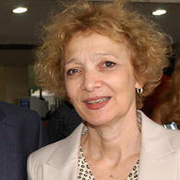Books
Guttman, N. Communication, Public Discourse and Road Safety Campaigns: Persuading People to Be Safer. Routledge, 2014.
Guttman, N. Public Health Communication Interventions: Values and Ethical Dilemmas. Sage, 2000.
Journal Articles and Book Chapters
Guttman, N., Gesser-Edelsburg, A., & Aycheh, S. Communicating health rights to disadvantaged populations: Dilemmas and challenges in developing a culture-centered model for Ethiopian immigrants in Israel. Health Communication, 28 (6), 546-556, 2013.
Guttman, N. “My son is reliable”: Young drivers’ parents’ optimism and views on the norms of parental involvement in youth driving. Journal of Adolescent Research, 28(2), 241-268. 2013.
Guttman, N., Ashkenazi, T., Gesser-Edelsburg, A., and Seidmann, V. People’s ethical concerns regarding an organ transplantation prioritization policy as an incentive to encourage people to sign the organ donor card: The Israeli organ transplantation “Point Plan”. Journal of Health Politics, Policy and Law, 36(4), 691-716, 2011.
Guttman, N. and Reir, D.A. Ethical communication issues in health promotion activities amongst Ultra-Orthodox [Haredi] Jews in Israel. In D.L.Rubin & A.N. Miller (Eds.), Health Communication and Faith-Based Communities. Hampton Press.
Guttman N., and Lotan, T. Spying or steering? Views of parents of young novice drivers on the use and ethics of driver-monitoring technologies. Accident Analysis and Prevention, 43(1), 412-420, 2011.
Guttman, N. and Thompson, T. Ethics in health communication. In G. Cheney, S. May, and D. Munshi. (Eds.), Handbook of Communication Ethics (pp. 293-308). Routledge - Taylor and Francis Group Publishers.
Guttman, N. Using communication research to advance the goals of the National Health Insurance Law in Israel. Health Communication, 25 (06-07), pp. 613 - 614. 2010, (100th issue of the journal).
Guttman, N. Public deliberation on policy issues: Normative stipulations and practical resolutions.Communication Yearbook 34,169-211. 2010.
Guttman, N., Shalev, C., Kaplan, G., Abulafia, A., Bin-Nun, G., Goffer, R., Ben-Moshe, R., Tal, O., Shani, M., Lev, B., What should be given a priority - costly medications for relatively few people or inexpensive ones for many? The Health Parliament public consultation initiative in Israel. Health Expectations, 11, 177-188; 2008.
Guttman, N. Gesser-Edelsburg, A., and Israelashvili, M. The paradox of realism and “authenticity” in entertainment-education: A study of adolescents’ views about anti-drug abuse dramas. Health Communication, 23, 128-141; 2008.
Guttman, N. Bringing the mountain to the public: Dilemmas and contradictions in the procedures of public deliberation initiatives that aim to get “Ordinary Citizens” to deliberate policy issues. Communication Theory, 17, 411-438; 2007.
Guttman, N. and Salmon, C.T. Guilt, fear, stigma and knowledge gaps: Ethical issues in public health communication interventions. Bioethics, 18 (6), 531-552; 2004.
Guttman, N. and Peleg, H. Public preferences for an attribution to government or medical research versus unattributed messages in cigarette warning labels in Israel. Health Communication, 15(1), 1-25; 2003.
Guttman, N., Zimmerman, D., Schaub-Nelson, M. The Many Faces of Access: Reasons for Medically Nonurgent Emergency Department Visits. Journal of Health Policy, Politics and Law, 28(6), 1089-1120; 2003.
Guttman, N. and Ressler, W. H. On being responsible: Appeals to personal responsibility in health communication campaigns. Journal of Health Communication, 6, 117-136; 2001.
Guttman, N., Schaub-Nelson. M., & Zimmerman, D. R. When the visit to the emergency department is medically nonurgent: Provider ideology and patient advice. Qualitative Health Research, 11(2), 161-178; 2001.
Guttman, N. and Zimmerman, D. Low income mothers’ views of breastfeeding. Social Science and Medicine, 50 (10), 1457-1473; 2000.
Guttman N. Beyond strategic research: A value-centered approach to health communication interventions. Communication Theory, 7: 95-124; 1997.



